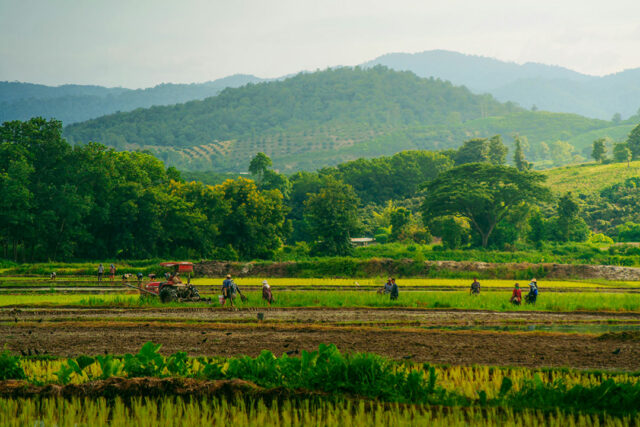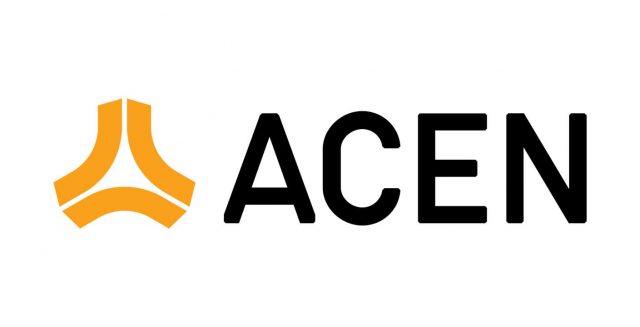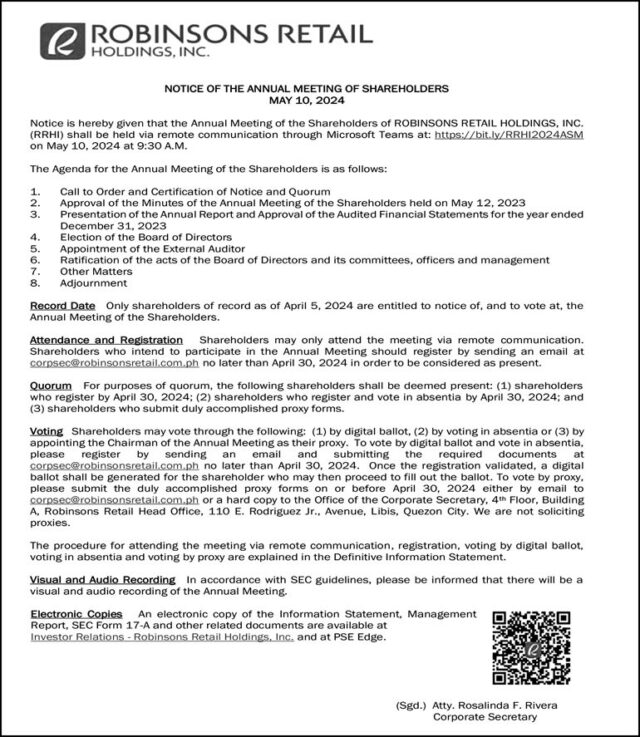Need for upskilling agribusiness executives: Lessons
(Part 2)
On March 16, the UA&P academic authorities awarded some 20 agribusiness executives with certificates of participation in the six-month Agribusiness Executives Program described in the first article of this series. I was asked to give some remarks to the graduating executives who completed six months of online and face-to-face sessions of lectures, case discussions, live-in workshops, and field trips related to their management responsibilities as executives of agribusiness enterprises, large and medium-sized. I was glad to see among the graduates some top and middle-level executives working not only for the large companies, but also self-employed entrepreneurs engaged in farming, transport and logistics, trading and agribusiness financing.
I am reproducing here the remarks I made which I am now addressing to all Philippine and foreign managers and entrepreneurs involved in some way or another with the Philippine agribusiness sector.
I started by reminding them of what the strategic planning process that President Ferdinand Marcos, Jr. must have gone through with his high-level board of advisors, composed of the most experienced businesspeople in the Philippines in food security. I know a good number of them and am impressed with the quality of these private sector advisors. I am also gratified to see evidence that President Marcos Jr. not only has chosen the most experienced and successful agribusiness advisors but also actually listens to their advice, as can be seen from his initial successes in moving the agricultural sector forward.
The year 2023, his first full year as President, saw the reversal of the negative experiences of the last five or six years of the Philippine economy as regards agricultural production. In the six years preceding the Marcos Jr. Administration there was no year in which agricultural production did not drop during one or more quarters. In contrast, in 2023, there was not a single quarter in which we saw a decline in agricultural production as a whole. In fact, the whole 2023 saw a small increase of 1.2% in annual agricultural production. Because of the large investments being made by both the public and private sectors in agribusiness, I see the great possibility that from 2024 to 2028, we can expect an annual growth rate of at least 3% in agricultural production, boosting the chances that the Philippine GDP can see accelerated growth at 8% annually in the last years of the Marcos Jr. Administration.
On his part, Secretary of Agriculture Francis Tiu Laurel — a hands-on and street-smart executive — is well qualified to carry out the primary responsibility of helping the small farmers and fisherfolk improve their meager incomes by providing them with better infrastructure and more inputs to improve their productivity. The role of the public sector today in agriculture is mainly geared towards the most important goal of poverty reduction while that of the private sector is the significant increase in productivity through the strategies described below.
To help the graduating executives identify very specific ways in which they can fully support through their agribusiness operations what the officials led by President Marcos Jr. would like to attain during their term in office, I simulated for them (and for all the agribusiness managers and executives who are reading this article) the strategic planning process which I surmise the President, his advisers, and Department of Agriculture staff must have gone through to make agriculture one of the economic engines of growth of the Marcos Jr. Administration. The Vision is easily stated as “A Philippines that is food-secure.” The Mission is to increase the productivity of all the factors of production used in the agricultural sector: land, labor, and capital through the appropriate entrepreneurial and innovation activities of both the public and private sectors.
I also know for a fact that the four strategic directions identified by the President, working with his advisors from both the public and private sectors, are farm consolidation, product diversification, digitalization, and industrialization. These were the strategies contained in the Transition Report given to the President by the former Secretary of Agriculture, William Dar. It was providential that one of my co-speakers in the “Graduation ceremonies” of the AEP participants was agribusiness expert, Dr. Fermin Adriano, who served as Undersecretary for Policy, Planning and Research under Secretary Dar. Dr. Adriano was one of those primarily responsible for formulating that Transition Report received by President Marcos Jr. from former Secretary Dar.
Land consolidation refers to undoing some of the harm done by the failed agrarian reform program of past Philippine Presidents. Although the intention to provide each farmer with a small-sized farm he could call his own was a good one, the road to hell is paved with good intentions.
Unlike in our neighboring countries like Taiwan, Thailand, and Vietnam in which land fragmentation was aggressively accompanied by the building of farm-to-market roads, irrigation systems, post-harvest facilities, and the provision of such inputs as farm credit, fertilizers, pesticides, etc., Philippine small farmers were left completely on their own after they received their small farms and thus ended even poorer than before.
At least when the large landowners monopolized the ownership of land, they provided their tenants with the necessary inputs and facilities to make their farms productive.
Today, it would be imperative to re-consolidate some of the millions of hectares of land through cooperativism or the nucleus estate model to reach the necessary economies of scale needed for increased land and labor productivity. This land consolidation is especially urgent in the coconut sector which represents some three million hectares of farmland. With significantly improved productivity of land in coconut farming, a good portion of these three million hectares can be diverted to other high-value crops as described below.
Product differentiation refers to replicating the success story of pineapples and bananas in providing both the domestic and export markets with these high-value fruits which are increasingly in demand as a country transitions from being a low-middle income economy to a high-middle income economy.
China, even with a much reduced population because of very low fertility rates resulting from very aggressive birth control programs in the past, will have huge demand for high-value products like fruits, vegetables and livestock as most Chinese join the middle class, which will happen in the next decade or so, even if the Chinese GDP growth has slowed down significantly. We could be one of the potential suppliers of these food products to China, as Vietnam and Thailand already are.
Like Malaysia, we should have not put all of our resources in trying to be self-sufficient in rice but rather diversified into many other high-value crops like coffee, cacao, avocado, mango, durian, palm oil and other high-value crops. We can use the revenues from exporting these products (together with bananas and pineapples) to import whatever rice we cannot cost-effectively produce from Thailand and Vietnam that have a great cost competitiveness in producing rice because of their almost unlimited supply of water from their ocean-like rivers. As an archipelago, the Philippines can never accumulate as much water as these two ASEAN neighbors of ours.
The other strategic directions adopted by this present Administration in the agricultural sector are digitalization and industrialization. By the first, we mean the application of all forms of IT or digital technology at the various links of the agribusiness value chain, from using drones and robots in farming to digitalizing warehousing, storage, logistics, and transport, to the use of data analytics in retailing and marketing. Industrialization means avoiding as much as possible the export of raw materials. If we are going to produce a lot of cacao or coffee beans, for example, let us go all the way to the finished products of chocolate candies and coffee drinks. We already have some anecdotical examples of chocolate candies manufactured from cacao beans produced in Bohol or Mindanao that can equal the quality of European chocolate products. What we have to do is to scale up these MSMEs to the equivalents of Nestlé and Hershey’s.
(To be continued.)
Bernardo M. Villegas has a Ph.D. in Economics from Harvard, is professor emeritus at the University of Asia and the Pacific, and a visiting professor at the IESE Business School in Barcelona, Spain. He was a member of the 1986 Constitutional Commission.












